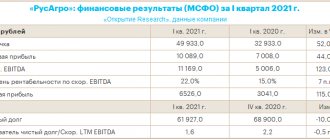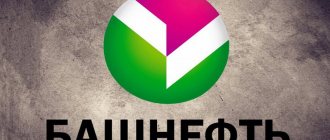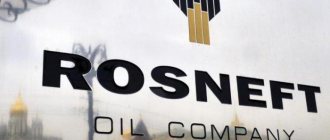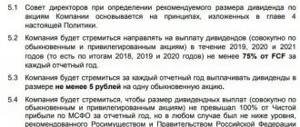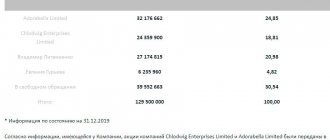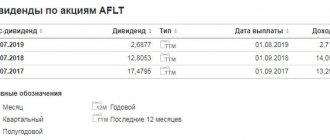• The key event of yesterday's Wednesday was the statement of the Verkhovna Rada following its two-day meeting. As a result, the regulator did not change anything in its credit policy, motivating the decision by the fact that economic prospects remain uncertain. • Alphabet's Google rose 2.9% to close at a record high after the company late Tuesday reported record profits for the second straight quarter and announced a $50 billion stock buyback from the market. • Microsoft's quarterly report met expectations on sales and beat earnings, but its shares fell 2.8% and weighed on the Nasdaq due to skepticism it will continue its strong performance going forward. • A decline in biotech Amgen (-7.2%) weighed on the Dow after the company said its first-quarter sales and earnings fell due to a 7% drop in net drug prices and the COVID-19 pandemic. • Boeing shares fell 2.9% after the company posted a larger-than-expected quarterly loss and suspended 737 MAX deliveries due to an electrical problem. • Consolidated first-quarter earnings per share for S&P 500 companies is expected to rise 39% from the first quarter, according to Refinitiv IBES data. 2021. • In Europe, the focus is on Deutsche Bank's 10.7% surge after it posted unexpectedly strong 1Q earnings. thanks to its investment division. Together with them, other banking securities pulled up: Spanish Santander +2.7%, British Lloyds Banking Group +3.5%, which published reports with profits better than expected. • Year-to-date in Europe, the top performers have been stocks from the cyclical, travel/leisure, automotive and banking sectors. • According to Refinitiv IBES, total earnings of European companies from the STOXX 600 index increased in 1Q. by 71.3% y/y. • On Thursday, copper prices in London approached the important psychological level of $9,999.50/tonne, amid a weakening dollar. The last time copper was this high was 10 years ago in 2011. Along with copper prices, Nickel, Aluminum, and Zinc rose to their maximums in a decade. • The dollar reached a nine-week low, after the Fed statement and bold statements from the White House increasing government spending. • Oil prices jumped on Wednesday after Goldman Sachs forecast global oil consumption would rise by 5.2 million barrels per day over the next six months, with oil prices at $80/bbl. • The EU has threatened to double import duties on Harley-Davidson motorcycles, American-made whiskey and yachts by 50% from June 1. A response to US protective tariffs on European products from the steel and aluminum industries. • Russians' inflation expectations have risen to a four-year high of 12% over the next 12 months. Vedomosti... • Yandex published a report for the 1st quarter. with revenue growth of 39% YoY. Vedomosti... • A shortage has formed in Russia for road construction equipment and trucks: Kommersant..., Kommersant... • The Russian stock market remains flat. None of the serious players make purchases before the long May holidays.
• Losses of Russian passenger airlines in 2021 amounted to almost 200 billion rubles. In 2021, passenger traffic of Russian airlines will increase by 15% by 2021 - up to 80 million people. But this will still be 38% lower than in 2021. Moreover, 70 million (out of 80 million) will be on flights within Russia. And passenger traffic on international flights in 2021 will continue to decline and will be 30% lower by 2020 - from 13 million people to 9 million people. Vedomosti...
• The following shares have been added to the buy recommendation: KAMAZ (KMAZ).
Recommendations
• Day traders/speculators: Off market. • Positional: no positions. • For long-term investment purposes, purchase of Bonds: issues 52001, *002, *003, 26225, *233, *235, *236, 46020. Shares: Polymetal, Severstal, MMK, NLMK, RusAl, Acron, PhosAgro, VSMPO Avisma, Moskovskaya exchange, Yandex, Mail.ru, AFK Sistema, Surgutneftegaz, Surgutneftegaz prev., NOVATEK, Magnit, Lenta, Gazpromneft, Petropavlovsk (POGR), Mosenergo, RusGiro, Unipro, InterRAO, Rostelecom, KAMAZ.
Technical analysis was prepared in the XTick Professional system.
Ayrat Khairullin: "Razgulay" is not the largest agricultural holding that collapsed"
13:10, 05.04.2016 6
Ilshat Tukaev applied for the Bugulma enterprise of the federal agricultural holding
Photo: Roman Khasaev
The media continue to follow with interest the epic associated with the restructuring of one of the largest agricultural holdings in Russia - PJSC Razgulay Group of Companies. In November 2015, it was announced that VEB was withdrawing from the capital of the holding, and Rusagro was taking over debt obligations. About how Tatarstan is still resolving issues of restructuring Bugulma enterprises owned by a debt-ridden company, and how Mintimer Shaimiev “conquered” Nurlatsakhar in his time, read in the material of Realnoe Vremya.
Buy Sell
Information about the sale of non-core assets has appeared on the website of the Razgulay agricultural holding. In particular, we are talking about two enterprises located in Tatarstan, namely: 75% (minus one share) of the share in the authorized capital of CJSC Bugulma Bakery Plant No. 2, owned by R-Holding LLC (176 million rubles), and 75% (minus one share) in the authorized capital of CJSC Bugulminsky Elevator, owned by R-Holding LLC (150 million rubles).
Let us note that, as Realnoe Vremya learned, representatives of the Russian agricultural holding Razgulay tried to find an investor for these assets in Tatarstan. Moreover, in both of these enterprises of the republic - for blocking stakes. Thus, at the end of November, the Ministry of Land and Property Relations of the Republic of Tatarstan held a meeting regarding the Razgulay agricultural holding. The discussion was about the sale of 75% of the shares of CJSC Bugulma Bakery Plant No. 2 and CJSC Bugulma Elevator, owned by the Razgulyai group, in connection with debt restructuring. Representatives of the holding were also present at the meeting. While the results of the negotiations are unknown, the Ministry of Land and Property Relations of the Republic of Tatarstan told Realnoe Vremya that they cannot provide information until the completion of the transaction. But it is known that a representative of Tatagroleasing PJSC took part in that meeting. The latter, as is known, played an important role in the anti-crisis plan for the division of VAMIN assets. That is, this state-owned company can be considered as one of the possible acquirers.
In December, Marat Akhmetov said that one of the contenders for the Razgulyaevsky Bugulma feed mill was the Reproduct enterprise. Photo by Roman Khasaev
Increased prices
Let’s add that back in December, Marat Akhmetov told Realnoe Vremya that one of the contenders for the “Razgulyaevsky” Bugulma feed mill (bread products plant No. 2 - editor’s note) was the Reproduct enterprise: “But “Razgulyay” asked for too much expensive, and in the end they built their own plant (it was launched by the famous entrepreneur Ilshat Tukaev in August 2014, its cost is 2.2 billion rubles). We have no information about other investors. We have a stake of 25% + 1 share, that is, a blocking stake. “Razgulay” does not unfold on the issue of investment. There is no modernization there. The elevator operates during procurement work, and producers pay them for storage. As for the feed mill, it works 3 days a week.”
As for the Bugulminsky elevator, Marat Akhmetov knows that there were contenders for it too: “There are buyers, they are asking dearly. My information is old, but there was a time when they asked for 250 million. The elevator is in such a state that another 250 million needs to be invested there. Moreover, they sell it together with the feed mill.” Now we see that Razgulay has finally reduced the price to 150 million.
Mirgasim Usmanov, head of the department of agriculture and food in the Aznakaevsky municipal district of the Republic of Tatarstan, told Realnoe Vremya that at the moment they are using the capacity of the Bugulminsky elevator to store 32 thousand tons of grain. “About the Bugulma elevator, I heard that they are selling it. But I don’t know the details,” says Usmanov.
The elevator is in such a state that another 250 million needs to be invested there, notes Akhmetov. Photo: wikimapia.org
Asked to leave
In general, the history of PJSC “Group” is quite epic, as is the history of its arrival in Tatarstan. It has everything: grandiose plans, multibillion-dollar thefts, huge debts and constant changes in the management team.
In 1999, as part of the restructuring, Razgulyai bought 100% of the shares of Bugulma Bakery Plant No. 1 JSC, Bugulma Bakery Products Plant No. 2 JSC and Bugulma Elevator CJSC in Tatarstan, after which four years later it sold a blocking stake (25 %) Tatarstan, thereby achieving the opportunity to work on the territory of the republic.
In addition, for several years in a row, the government of the Republic of Tajikistan, as part of the program for the privatization of a number of state-owned facilities, has put up for auction 25% + 1 share of the Bugulma bakery products enterprise, 25% + 1 share of the Bugulma elevator and 7.69% of the Elabuga grain receiving enterprise. There are these shares in the forecast plan for privatization and for 2021.
The history of another Tatarstan enterprise is also complicated - Nurlat Sugar Plant OJSC, which, after restructuring in 2001, also found itself under the wing of Razgulay. Then the founder and president of the company, Igor Potapenko, stated that $1.5 million would be invested in the reconstruction of Nurlatsakhar OJSC. But already in 2007, the sale of the enterprise was announced. According to some reports, the decision was initiated by the government of Tatarstan, headed by President Mintimer Shaimiev, who was dissatisfied with the results of the enterprise. The complaint was that Razgulay had not increased its raw material base for production. In 2008, the deal was completed, and Nurlat Sugar Plant joined Rais Suleymanov’s AgroInvest group of companies.
The plant operates 3 days a week, says Marat Akhmetov. Photo bkhp2.ru
From princes to rags
The founder of the Razgulay agricultural holding is Igor Potapenko. After 22 years of working in the agricultural sector, in 2014 he suddenly went from being the “sugar king” to being a defendant. He was charged with fraud in carrying out transactions for the purchase and sale of land for an agricultural holding. According to the investigation, the ex-president of the company, during the operations, stole 20 billion rubles with the ex-director of the holding Dmitry Tyukhtenko and financial director Andrei Polyakov. Actually, with this team, Potapenko left Razgulay in 2011, selling his stake (but remaining on the board of directors), and founded a new agricultural holding - Agroko LLC. The basis for initiating a case under Part 4 of Art. 159 of the Criminal Code of the Russian Federation (“Fraud on an especially large scale”) was the appeal of the new management of Razgulay.
Potapenko was replaced in 2011 by a native of Tatarstan, Rustem Mirgalimov, managing partner of Avangard Asset Management, ex-deputy chairman of AK BARS Bank and owner of 29.99% of the company’s shares (at that time Avangard Asset Management bought a blocking stake). After 8 months of rule, other candidates were expected to take his place, and Mirgalimov was called more of an investor than a manager. As a result, from 2012 to 2015, the company was headed by Elena Lazarenko, and Mirgalimov remained as chairman of the board of directors. By the way, these two individuals are connected by the same Avangard Asset Management, where the managers came in 2007.
In September 2015, numerous rumors were confirmed, and Sergei Tribunsky, IR director of Rusagro, became the general director of Razgulay. At the same time, it was decided to include three more representatives of Rusagro on the board, in addition to Tribunsky. Two months after changes in personnel, VEB sold its stake to the holding and left the capital of Razgulay.
After 22 years of work in agriculture, Potapenko suddenly turned from a “sugar king” into a defendant. Photo: massmediarussia.com
Perhaps the latest resignations at VEB also helped Rustem Mirgalimov’s structures to become more active in selling Tatarstan assets. Thus, his informal patron Ilgiz Valitov was recently arrested.
From hand to hand
In the 2000s, Razgulay’s plans could be called Napoleonic: in 2003, the company planned to increase its sales volume to $850 million by 2007, and in the near future to expand its presence by entering three more regions. But after the economic crisis in 2008, the agricultural holding found itself in a severe crisis hole. The company ended 2009 with a debt of more than $1 billion.
In 2010, the government corporation Vnesheconombank became a creditor of the company; later, with the arrival of Mirgalimov, first 21.4%, and then a blocking stake (30% of shares) of Razgulay was bought by the investment fund Avangard Asset Management, and 20% was bought by the main creditor of VEB . The remaining shares were “scattered” among other creditors.
On November 30, 2015, VEB sold its 19.97% stake in Razgulay to Rusagro and, in addition, loan obligations. For the purchase, the holding took a loan from VEB for 34 billion rubles for 13 years, VEB withdrew from the capital of Razgulay, and the borrower was being restructured. On the Rusagro website it is stated that the company, together with management, will conduct an analysis of Razgulay, on the basis of which it is planned to think over a strategy for restructuring the loan portfolio.
As of September 30, 2015, in addition to Rusagro (19.97%), the following companies own more than 40% of the shares: Chandlor (7.6%), registered in Cyprus, and Atonline (9.9%) , Amoril Holding (9.6%), Olfrin Associates (8.2%) and Tapsaw Invest (7.1%), registered in the British Virgin Islands. 13.9% of shares are owned by the issuer or affiliates. The remaining 31% of shares were in free circulation on the Moscow Exchange at the end of November.
Rustem Mirgalimov replaced Potapenko in 2011. Photo vesti.ru
“In fact, on its ruins they created
Deputy Airat Khairullin commented on the history of the Razgulay agricultural holding to Realnoe Vremya:
— Although I am the creator of the Krasny Vostok agricultural holding, I am not involved in operational work. My advantage is that I, as the owner, have full control of all the information, they prepare certificates for me, and from them I see the real picture of what is happening, what is being said, I can put myself in the shoes of agricultural producers and see what worries them. But at the same time, of course, various proposals were received.
Razgulay is not the largest agricultural holding that collapsed. For example, “VAMIN”, which collapsed, was the largest milk producer and processor in the Russian Federation. The first reason is the huge debt load, the second is the unwillingness in these conditions to make a serious decision and pull out these enterprises. In the West, for example, and in America, they have come this long way and understand that it is better to save an enterprise today than to try to create a similar one later. And in the end, you need to understand that Razgulay did not collapse. In fact, on its ruins they created, which quite recently divided into two parts: one became part of the group owned by Moshkovich “Rusagro”, and the other continues to work. They divided the areas of business. In general, agriculture is a very capital-intensive industry, and for one ruble of cash earnings you need to spend much more money here. It’s not just setting up a kiosk, buying goods and doing business, no. If you, for example, want to build a farm and produce milk, you need to be prepared for the fact that for one ruble of cash earnings per year you need to invest four times more money. That is, in order for you, as an entrepreneur, to have a turnover of only 1 million rubles per year, you must invest 4 million. And if you want a turnover of 10 million, then you must invest 40 million. We don’t even have such readiness today. And this is exactly what I am doing in the State Duma, to create conditions for those people who were born and raised in the village to have conditions created for them. We have adopted serious programs to support farmers this year; they are supported almost three times by the grant system.
Maria Gorozhaninova, Angelina Panchenko, Dina Valiullina, Arslan Minvaleev
“Razgulyay” sold for billions VEB
The day before, the Tverskoy District Court of Moscow granted the request of the Ministry of Internal Affairs, arresting the founder of the Razgulay agricultural holding, Igor Potapenko. He was remanded in custody for two months. In addition to him, former top managers of Razgulay, Dmitry Tyukhtenko and Andrey Polyakov, were also involved in the case of fraud on an especially large scale: for now they are under recognizance not to leave.
According to investigators, in the period from 2007 to 2010, senior officials of the company organized the conclusion of agreements with fictitious legal entities for the acquisition of land for agricultural enterprises included in the holding, for a total amount of 20 billion rubles. As part of the signed agreements, money was transferred to the current accounts of fictitious organizations and misappropriated by fraudsters. In reality, transactions were carried out by employees of these enterprises at the expense of their own working capital.
The names of the shell companies are not disclosed in the interests of the investigation. However, they are not the main characters here. This story is one of everyday corruption, and it could have remained so if Potapenko’s brainchild had not become the property of Vnesheconombank. After an inspection, the bank discovered a large shortage of funds and assets, which became the reason for contacting the Ministry of Internal Affairs.
Advertising on the eyelid How to place
Having created a company in 1992 (until 2005 it was called “Razgulay - Ukrros”), specializing in the production of sugar, cereals and grains, Igor Potapenko began to actively attract external investors in 2006. The Razgulay IPO brought its owner $144 million. The company began to grow, but its debts grew even faster. At the same time, VEB was the main creditor of the agricultural holding. And how could it be otherwise: the bank’s memorandum for the period from 2007 to 2016 states in black and white that supporting agricultural enterprises is one of the priorities.
In addition to additional placements of shares on the stock exchange (SPO in 2007 and 2008) and the sale of the agricultural holding’s securities on the debt market (since 2005, the holding has placed loans worth more than 30 billion rubles), in 2010 Potapenko sold a large stake (more than 20%) in favor of the management company Rustem Mirgalimov. Then we managed to attract approximately 1.5 billion rubles. The debt of Razgulay at the end of 2010 amounted to almost 26 billion rubles, of which 19 billion were debt obligations to VEB. At that time, among the main assets of the Razgulay group were 10 sugar factories, 6 flour mills and 3 grain processing enterprises. The group also owned more than 400 hectares of arable land, a network of storage facilities and warehouses. The group operates in the North-Western and Central Black Earth regions of Russia, the Upper and Middle Volga region, the North Caucasus, the Southern Urals and Western Siberia.
While remaining on the board of directors of Razgulay with a share of about 18%, Potapenko created a new agribusiness in 2011: a company with a less sonorous name “Agroko”. It specialized in the purchase (of course, with borrowed money) of agricultural land, as well as grain for the purpose of further sale for export. Its management was replenished by the former leadership of Razgulay, including Dmitry Tyukhtenko and Andrey Polyakov.
It would seem that Potapenko, being a shareholder of Razgulay, began to raise a competitor. The agricultural holding did not comment on the situation at that time, and the agricultural activist himself repeatedly stated that the companies were cooperating. According to him, the grown sugar beets from Agroko are sold to Razgulyay, and he, in turn, sold grain to his partner.
It is not known how this partnership would have developed, but at the beginning of 2013, VEB bought about 20% of the shares of the Razgulay group. To be precise, the bank received its share by writing off part of the group’s debts and restructuring the loan portfolio. Considering the high debt burden, the agricultural holding could hardly count on loans from commercial structures.
Then experts treated the problems of the agricultural holding with understanding. “The company has a very difficult financial situation, transferring part of the debt into equity capital will improve it,” said Vera Loseva, senior partner of the Third Rome Investment Company. “And although the lender is not offered the most favorable conditions, most likely, the state, represented by VEB, will agree to this, as it does to many companies in the agricultural sector, given their importance in the regions where they operate.”
“Razgulay’s debt to Vnesheconombank amounted to 19 billion rubles, the total debt was about 30 billion. At the same time, the company’s shares fell in price by more than 10 times over three years, and two and a half times in the year following the deal with the state bank,” IFC Markets analyst Dmitry Lukashov explained to the Century. “Of course, the creditors didn’t like this, so it was most likely only a matter of time before the reasons for Razgulay’s difficult financial situation were investigated.”
Immediately after the Ministry of Internal Affairs announced thefts in the agricultural holding, its shares on the Moscow Exchange fell by 19% (as of 14:40 Moscow time). Representatives of Razgulay tried to quell the panic, saying that the claims of law enforcement agencies were addressed to the former management of the company and were not related to the current one. Information appeared on the group’s website that Igor Potapenko is only an independent member of the board of directors. And in the section about affiliates you can read that Potapenko (as of March 31, 2014) does not have shares in the holding.
The reaction to the event from the United Russia parliamentarians was not long in coming. Chairman of the State Duma Committee on Security and Anti-Corruption Irina Yarovaya said that large-scale fraud in the national agricultural holding once again confirms the relevance of the bill on liability for theft of budget funds, state corporation funds and state funds for the “development” of the budget, she noted. “And the sanction must be comparable and adequate to the gravity of these crimes.”
An excellent reaction, it’s only a pity that the ruling faction also did not react promptly a year earlier, when facts of major fraud in the state agro-industrial sector were revealed. There was information in the media that former Minister of Agriculture Elena Skrynnik, who previously headed this organization, could be involved in the fraud. But she denied all accusations against her. And last month, the court arrested in absentia and put on the international wanted list the former Deputy Minister of Agriculture Alexei Bazhanov, also accused of fraud. But this information also somehow went almost unnoticed. “The connection in the case of the theft of funds from Razgulay with other cases in which government officials appear is not visible, but anything can happen,” says Dmitry Lukashov.
“This case only confirms the general prejudice against agriculture, that they steal there like nowhere else, even more than in the electric power industry. A distinctive feature of the last 10-15 years was that theft by civil servants was elevated, perhaps, to the rank of ideology. Therefore, today, no matter where we dig, we are almost guaranteed to get a new “Oboronservis case,” independent analyst Dmitry Adamidov commented on the situation to Veka.
According to the expert, in the case of Razgulay, internal or competitive struggle cannot be ruled out, but for national interests it is more important that the case goes to court and that it is not the “switchmen” (even if they had quite high positions), but the organizers and customers who are punished. This is dictated not by bloodthirstiness, but by the elementary instinct of self-preservation. “If, with respect for the rule of law and the irresponsibility of government officials, we leave everything as it is, then in the near future we may get a social explosion, in comparison with which the current unrest in Ukraine will seem like sheer nonsense,” Adamidov concluded.
The founder of the Razgulay agricultural holding was released from prison
The trial to extend the arrest for the founder and former owner of the Razgulay agricultural holding, Igor Potapenko, who is now the main accused in the case of the theft of more than 20 billion rubles from the company, ended with an unpleasant surprise for the investigation. The Moscow City Court denied the investigation's request, but agreed with the arguments of Potapenko's defense that the crime he was charged with was related to the business sector and did not require detention. In connection with this, the court placed the businessman under house arrest. Potapenko remained the only person involved in this case - investigators were unable to collect enough evidence against the ex-CEO of the holding Dmitry Tyukhtenko and financial director Andrei Polyakov, so they were transferred from suspects to the status of witnesses.
Businessman Igor Potapenko was arrested at the end of April 2014 and since then his arrest has been extended. For another arrest, the investigation appealed to the Moscow City Court in early September.
According to Izvestia, an investigator of the Main Investigation Department (GID) of the Main Directorate of the Ministry of Internal Affairs for Moscow asked the court to leave Potapenko in pre-trial detention for another two months, explaining this by the fact that he is accused under Art. 159 of the Criminal Code of the Russian Federation (“Fraud on an especially large scale”), and while at large, he can hide, continue to engage in criminal activities, destroy evidence and put pressure on witnesses. The businessman’s defense, in turn, asked to change the preventive measure to any other one not related to imprisonment.
— The defense appealed to the fact that Potapenko is accused under the “economic” article, which does not provide for keeping a person in a pre-trial detention center without good reason. In addition, they believe that the charges were brought against him without any basis - the contracts did not even have Potapenko’s signatures, a source in the court told Izvestia.
The court sided with Potapenko’s defense and decided to release him from the pre-trial detention center and transfer him to house arrest for the next two months. The businessman will live in his apartment in the capital.
Potapenko’s lawyer Andrei Kiselev refused to tell Izvestia the details of his client’s release from custody and the investigation itself. The press service of the Main Investigative Directorate of the Ministry of Internal Affairs also refused to comment on the news on the “Razgulay” case.
Igor Potapenko is now the only person involved in the “Razgulay” case. The holding's former general director Dmitry Tyukhtenko and financial director Andrei Polyakov, who were detained along with him in April, have now been transferred to the status of witnesses. The investigation was unable to find sufficient evidence to bring them to criminal responsibility. Now they are free and working in a new agro-industrial holding company founded by Potapenko in 2011 after leaving Razgulay.
Agroko refused to connect Izvestia with Andrei Polyakov.
“Unfortunately, Polyakov is not constantly at work, but if he wants to comment on the situation, he will definitely contact you,” Agroko representatives said.
Let us recall that Potapenko was detained on April 23 in his own home by operatives of the Main Directorate of Economic Security and Anti-Corruption (GUEBiPK) of the Ministry of Internal Affairs. He was taken to the Main Directorate of the Ministry of Internal Affairs in Moscow for interrogation. Soon the businessman was charged under Part 4 of Art. 159 of the Criminal Code of the Russian Federation (“Fraud on an especially large scale”). Under this article, he could face up to 10 years in prison and a fine of up to 1 million rubles.
The reason for the criminal case was an appeal to law enforcement agencies by the new management of the Razgulay agricultural holding. According to investigators, the fraud scheme was as follows: in 2007–2010, Razgulay’s top managers entered into several agreements with shell companies for the purchase of land for the needs of agricultural enterprises that were part of the holding. The total value of the transactions was estimated at 20 billion rubles. Investigators believe that the money went into the accounts of fictitious companies and was then stolen.
Market news | The court declared the Razgulay group bankrupt
The Moscow Arbitration Court on Monday, at the request of the Rusagro Group of Companies, declared PJSC Razgulay Group insolvent (bankrupt), an Interfax correspondent reported from the court. The court opened bankruptcy proceedings against the debtor and scheduled a report from the bankruptcy trustee on the work done for October 23.
Speaking at the meeting, the debtor's temporary manager stated that restoring the company's solvency was impossible. The meeting of creditors voted for the bankruptcy of the Razgulay group, he said.
According to him, the company has property worth about 13 million rubles.
A representative of the Rusagro Group of Companies supported the demand for bankruptcy of the debtor at the meeting.
On October 28, 2021, at the request of the Rusagro Group of Companies, the Moscow Arbitration Court introduced a monitoring procedure at PJSC Razgulay Group as part of a bankruptcy case. The court then included the group's debt to the applicant in the third priority of the debtor's register of creditors.
It was previously reported that PJSC Razgulay Group recognized its debt to LLC GC Rusagro (applicant in the bankruptcy case). “We tried to come to an agreement, but it didn’t work,” said a representative of the Razgulay Group at a court hearing in October 2021.
Answering a question from the court, a representative of Razgulay said that the main creditor is the Rusagro Group of Companies, but there are also several dozen small creditors.
At a court hearing on September 23, 2021, a representative of PJSC Razgulay Group stated that the company was taking measures to repay the debt to LLC GC Rusagro.
OOO GC Rusagro then confirmed the fact of negotiations.
In this regard, the court then adjourned the hearing.
At the last meeting, it was noted that Razgulay’s debt to the applicant amounts to 624.6 million rubles.
On January 25, 2021, the Moscow Arbitration Court included in the register of creditors of PJSC Razgulay Group the claim of LLC Rusagro Group of Companies in the amount of 1.9 billion rubles (principal debt).
In addition, the court included in the register of creditors of the company a debt to the Federal Tax Service N21 in the amount of 5.8 million rubles. At the same time, the court refused to include Ruskobank (Vsevolozhsk, Leningrad Region) in the register of debt to it in the amount of 201.3 million rubles.
Meanwhile, on August 4, 2021, the Ninth Arbitration Court of Appeal decided to recover 201.3 million rubles of bond debt from Razgulay-Finance LLC in favor of Ruskobank. On October 27, the Moscow District Arbitration Court upheld the ruling.
From the case materials it follows that Razgulay-Finance LLC is a commercial organization, the participants of which are PJSC Razgulay Group with a share in the authorized capital of the company of 40% and the Cypriot legal entity Razgulay-Ukrros Group Limited (60%) .
The Razgulay Group is a member of the Razgulay-Ukrros Group Limited with a share of 99.99%, and Razgulay-Finance LLC is a subsidiary of the Razgulay Group.
Meanwhile, on June 21, 2021, the Central Bank of the Russian Federation revoked Ruskobank’s license to carry out banking operations. On July 19, 2021, the Central Bank of the Russian Federation filed an application with the Arbitration Court of St. Petersburg and the Leningrad Region for the bankruptcy of Ruskobank. However, it was returned due to improper registration, the case file says. On August 1, 2021, the Central Bank of the Russian Federation filed a new application, and on March 29, 2021, the bank was declared bankrupt.
GC Rusagro is currently one of the largest Russian producers of pork, sugar, packaged margarine and mayonnaise. The group unites more than 35 agricultural enterprises, 7 sugar factories, JSC Fat Plant (Ekaterinburg), trading branches, and also controls about 500 thousand hectares of land.
Razgulay's problems began in March 2009, when it defaulted on bonds worth 8 billion rubles. In recent years, he has been trying to reduce debt.
The co-owners of Razgulay are AVG Capital Partners, Chairman of the Board of Directors of Razgulay Rustem Mirgalimov (according to the Kommersant newspaper, the company that owned 24.6% of Razgulay shares has already sold half of its stake), Atonline Ltd. (9.91%). 13.9% of the shares belong to the subsidiaries of the agricultural holding.
At the end of November 2015, the Rusagro group became the owner of 19.97% of the company’s shares, purchasing this stake from Vnesheconombank for 33.9 billion rubles. To finance the transaction, Rusagro attracted a loan from VEB for this amount for a period of 13 years, the loan rate is 1% per annum. The deal with VEB also included the assignment to the Rusagro group of rights to claims under the bank’s loan agreements with the companies of the Razgulay group. At the same time, Rusagro itself placed 13.9 billion rubles on deposit with VEB until November 2028 at 12.84% per annum as collateral for this loan.
To pay off the debt, the main assets of Razgulay have been put up for sale, and some of them have already changed owners. The buyers were Rusagro, Agrocomplex named after I.N. Tkachev, Dominant, and the Pokrovsky concern.
The Razgulay group unites three industry areas: sugar, agriculture and grain, as well as a division for interaction with retail chains.
Site archive
Photo: Dmitry Lekai/Kommersant
The Moscow Arbitration Court introduced a monitoring procedure in relation to the Razgulay agricultural holding. The company was unable to reach an agreement with Rusagro Group on debt repayment. The court postponed the issue of bankruptcy of one of the largest agricultural holdings in Russia until next year. The surveillance procedure will not save Razgulay from bankruptcy, experts say.
On Friday, October 28, the Moscow Arbitration Court introduced a monitoring procedure against the Razgulay agricultural holding based on a claim, an RNS correspondent reports from the courtroom.
“Introduce a surveillance procedure against PJSC Razgulay,” the court decision says. The Razgulay bankruptcy case will be heard in April 2021.
On Friday morning, shares of the Razgulay group fell by 20% amid news that the company was unable to conclude a settlement agreement with Rusagro in the bankruptcy case.
Problematic agricultural holding
The Razgulay Group was one of the largest agricultural holdings in Russia. The agricultural holding united three areas: sugar, agricultural and grain. Under his control were about 340 thousand hectares of land, it included 12 elevators, six flour mills, three cereal factories, 10 sugar factories and a milk canning plant.
The agricultural holding's financial difficulties began in 2009, when Razgulay defaulted on bonds worth 8 billion rubles. After this, the company’s management changed, and the board of directors included representatives of VEB, which was the main creditor of the group, and the management.
In 2015, VEB entered into a deal with the Rusagro group as part of the restructuring of Razgulay’s debts. Under the terms of the deal, at the end of 2015, Rusagro bought from VEB the debts of Ruzgulay and the 19.9% shares and bonds of the agricultural holding owned by the bank. The transaction amount was 34 billion rubles.
After this, the Razgulay agricultural holding began to sell off its assets. Some of the assets, including three sugar factories and 90 thousand hectares of land, were bought by Rusagro itself; the rice assets were bought by the Agrocomplex named after. N. I. Tkacheva.
Prospects for bankruptcy
In July, the Razgulay agricultural holding filed a bankruptcy petition with the Moscow Arbitration Court. In June, Rusagro requested that Razgulay be declared bankrupt, hoping to recover over 4 billion rubles through the court. from companies that are part of the Razgulay Group of Companies. Rusagro asked to recover about 3.6 billion rubles. from the RSK trading house (debt under credit agreements of 2009 and 2013), as well as 470 million rubles. debt - from the Karachay-Cherkess Sugar Plant under loan agreements in 2011.
By August 2021, Rusagro had already gained 15 billion rubles from the sale of Razgulay assets, Rusagro CEO Maxim Basov reported during a conference call. According to him, Rusagro already believes that they have made a profit from the deal to buy out Razgulay’s debts from VEB. In September, Basov told RNS on the sidelines of the Eastern Economic Forum that Razgulay had practically no assets left. “They’ve already sold everything, they’re going bankrupt and closing,” he said.
The bankruptcy of the Razgulay agricultural holding will take place, says BCS senior analyst Marat Ibragimov. “Even having sold everything, they remain theirs (Rusagro - RNS),” he notes.
"Range": the end of the story
Vnesheconombank has agreed on the terms of restructuring the debt of the enterprises of the Razgulay group. Based on the results of consideration of proposals received from interested specialized investors, the conclusion of a package deal with the Rusagro group was approved. “The transaction includes the assignment to the Rusagro group of rights (claims) under Vnesheconombank’s loan agreements with the companies of the Razgulyay group, the sale of Vnesheconombank’s shares of the Razgulay group and Razgulyay bonds,” VEB clarifies in a statement. Thus, VEB will get rid of Razgulay’s debts - about 34 billion rubles and a stake of 19.9%. The deal is expected to be closed by December of this year.
The deal to sell Razgulay and resolve the problem of its debts had been planned for several years, but for a long time there were no contenders for the assets. Oddly enough, devaluation helped and its side effect was an increase in the efficiency of the agricultural sector. This growth has made it an interesting asset for the market, which has been in a half-dead state for the last few years. As a result, there was a demand for it; along with Rusagro, other players began to show interest in the asset. It is possible that if VEB had not been in a hurry to get rid of Razgulay, it would have been able to get more for it than Rusagro offered. Trapped in Debt The business dates back to the 1990s. At that time, its main activity was wholesale trade in sugar and grain. As the business grew, production assets gradually joined the company - a couple of sugar factories, elevators and bakery plants. But the company made its main breakthrough in the early 2000s, starting consolidation in the sector. Over the course of five years, Razgulay was able to absorb about three dozen enterprises in the agro-industrial complex in 16 regions of Russia. The main bet was placed on flour mills, bakery factories and sugar factories. As a result, by the mid-2000s, one of the industry leaders emerged, occupying about 12% of the Russian sugar market, about 10% of the grain trade market, 9% of the cereal market, 3% of the flour market and employing 11 thousand people.
Aggressive expansion took place through capital markets. In 2006, Razgulay held an IPO, selling 28.3% of the shares, then the company raised $144 million. Demand for that placement exceeded supply 106 times. Applications for participation in the auction were submitted mainly by foreign funds. The re-placement of securities took place in 2007. The company was able to earn $70 million. In 2008, during the third placement, Razgulay raised another $295.2 million. It would seem that there should have been more than enough money, but the modernization of factories and the aggressive purchase of land nevertheless undermined the financial well-being of Razgulay. Speaking about the land that Razgulay acquired, it should be noted that a criminal case has been opened against the company’s founder, Igor Potapenko, under the article “Fraud on an especially large scale.” The investigation believes that he sold his own land to Razgulay at inflated prices, thereby stealing 20 billion rubles. One way or another, the wave of the 2008 crisis hit the company completely. Already in 2009, Razgulay declared a default on bond issues worth 8 billion rubles. Lenders, led by VTB Group, threatened the company with bankruptcy. But then we managed to come to an agreement with them. Igor Potapenko was removed from the management of the holding; AVG Capital Partners first became a shareholder, and later Vnesheconombank (VEB). The main reason that creditors did not insist on the bankruptcy of the Razgulay group back in 2009 was its size and market share: it turned out that the holding was too large, as they say, to big to fail, and its fall could have been a serious blow in economics. “Razgulay” was included in the list of systemically important enterprises, and the main fireman of that crisis, VEB, was sent to extinguish the fire of financial collapse. As a result, debts from commercial banks for the most part gradually moved to VEB’s balance sheet. Razgulay itself slowly faded away after the experience, losing revenue and market shares. For example, last year the company suspended operations at three of its ten sugar factories. This step had to be taken due to a lack of funding and the lack of approval of the debt restructuring program by VEB. The company's rice plant in the Krasnodar Territory also did not work, and the acreage was reduced by 6%. By the beginning of 2015, the finances of the Razgulay group looked like this: the group’s revenue was a little more than 14.2 billion rubles (in the stellar year 2007 it reached 31 billion rubles), EBITDA was 2 billion rubles, total debt was 40 billion rubles, with Most of this (up to 34 billion) was on the balance sheet of VEB. The company could not service such a burden, and the development bank began to look for ways to solve the problem. Crossing the red line The first version of Razgulay's debt restructuring involved an additional share issue in favor of VEB. However, this is unlikely to solve the group's problems. Later, VEB apparently decided to cross the red line and still record a loss on the deal. A discussion began of various ideas - from bankruptcy to finding an investor. Rumors spread throughout the market. “Razgulay” was “matched” either for Sberbank or for AFK Sistema. There were reports that VEB would sell debt separately in installments over 20 years, or separately shares or assets. In the spring of 2015, the largest agricultural group Rusagro entered the game. She offered to buy the problematic asset from VEB’s balance sheet. The bargaining has begun.
As a result, after several months of negotiations, an agreement was reached. According to sources of the Kommersant newspaper, VEB will sell its debt in the amount of about 34 billion rubles and the Razgulaya stake (19.9%) for 14 billion rubles, thereby agreeing to a loss of 20 billion rubles. Even before the deal was closed, Rusagro was able to appoint its manager as head of Razgulay, its representatives joined the company’s board, and in addition, Rusagro began servicing the group’s debts. Rusagro, controlled by Vadim Moshkovich, a senator from the Belgorod region, is one of the largest players in the Russian agricultural industry. The main areas of its work are the sugar market, where the group’s share reaches 15%, pork (6.3%), margarine (49%), and grains. Rusagro is represented in one way or another in 80 regions of the Russian Federation. The group's revenue at the end of last year increased by 62%, to 59.12 billion rubles, and EBITDA amounted to 18.1 billion rubles. For a long time the company remained non-public, but in 2011 it listed its shares in London. Investors gave this company $340 million for an 18.3% stake. The funds raised were used, among other things, to pay off debt. At the end of last year, the group’s financial condition was excellent: net debt amounted to only 3.4 billion rubles, debt/EBITDA ratio was 0.2. The media are already reporting that the Rusagro group and AVG Capital Partners have a plan to split Razgulay into two components. The sugar direction will allegedly leave, thereby this company will strengthen its position in this direction and increase its market share to 25%. The remaining assets will go to AVG Capital Partners. However, there is no official information yet that the deal will be structured this way. And in general, when discussing a complex transaction, two open joint-stock companies (Razgulay and Rusagro), as well as the VEB Development Institute, which by law is called upon to meet the best standards of information disclosure, ignored the public field. For six months, information about the largest deal in the agricultural sector entering the public space was semi-secret. Newspapers referred to unnamed sources, leakers, structures close to companies, etc. The leapfrog with options for selling Razgulay even attracted the attention of Prime Minister Dmitry Medvedev. In particular, he gave instructions to carry out the deal with Razgulyay “more openly.” Open and close Fulfilling Medvedev's instructions, Vnesheconombank in early October invited market participants to make offers to buy out the debt of the Razgulay group, despite the existing offer from Rusagro.
Market players quickly responded. One of the companies that received VEB’s proposal estimated the value of Razgulay’s grain assets at 8 billion rubles, and sugar assets (including land) at 15.8 billion rubles. Another 10 billion rubles are accounted for by current assets (Kommersant, which published these estimates, did not specify where they came from). AFK National assessed Razgulay's assets at 28 billion rubles, including sugar assets at 11 billion rubles, rice assets at 6.5 billion rubles. Agrocomplex named after. N.I. Tkachev (belongs to the family of the Minister of Agriculture Alexander Tkachev), as well as Prodimpex. As a result, it turned out that the market values Razgulay’s assets at least twice as expensive as what Rusagro gives, but the players did not take into account one nuance: the only company that not only sent an application to VEB, but also reserved the amount necessary for the transaction in the state bank , it was Rusagro. That is, this company was able not only to make an offer to buy out problematic assets, but also to confirm its intentions financially. The other players didn't. In addition, Rusagro made a small cunning move: by sending the proposal to VEB, it limited its validity to three weeks. As a result, VEB had no choice but to agree to the bird in its hands. For too long, VEB managers have been looking for demand for an illiquid asset, which, without new financial injections, was rapidly heading towards bankruptcy. The chance to save at least some of the funds forced the development bank to hurry up. At the same time, VEB, when making decisions on the sale of debts and shares of Razgulay, did not seem to take into account the changing situation and the excitement in the agricultural market. The devaluation of the ruble and import substitution programs have made the agricultural market very attractive - what looked like illiquid goods for years can now be sold at a favorable price. According to experts, the alternative in the form of selling off blocks of the Razgulya business on the market could be more attractive. Interest in the assets was high, and they could potentially fetch 28–35 billion rubles. Then VEB's losses would have been half, or even three times less. But current shareholders would lose their assets entirely. Whether this is fair or unfair can be debated for a long time: after all, share capital is the most risky. It turns out that VEB is carrying out the sale, observing all internal corporate procedures, however, by waiting a little longer and trying to sell parts of Razgulay at an open auction, the bank could minimize its losses.
Could it have been possible to postpone the solution to the problem for some more time - in the hope that the company, in the wake of the rise of the agricultural sector, would show serious business growth and cope with its main difficulties? It seems not: the accumulated debt was so large that even high-quality assets would not be able to service it under any market conditions. “Razgulyay” would also hardly be able to regain its market shares.

